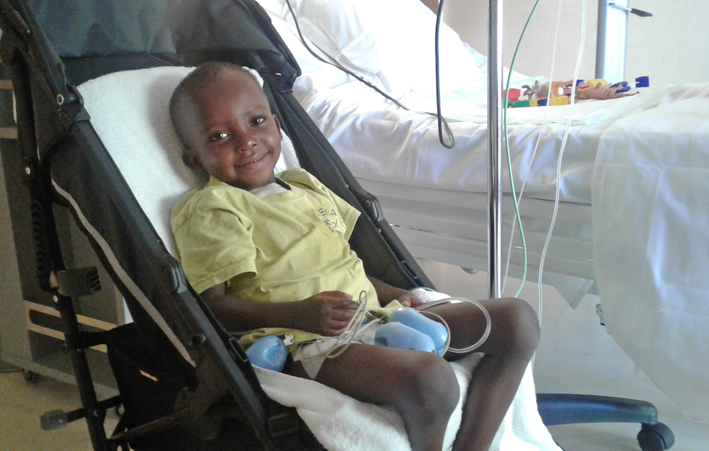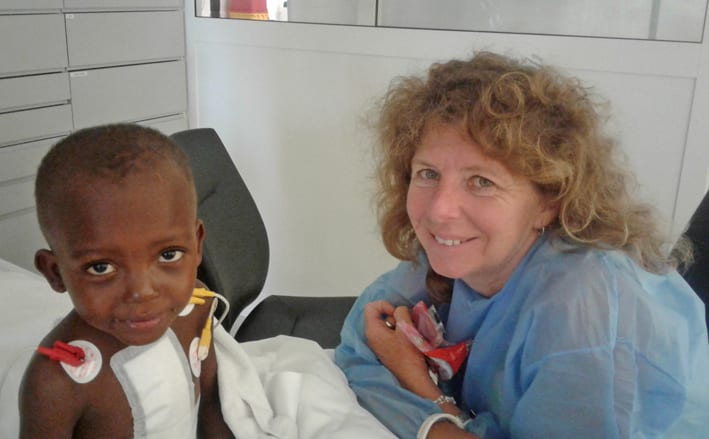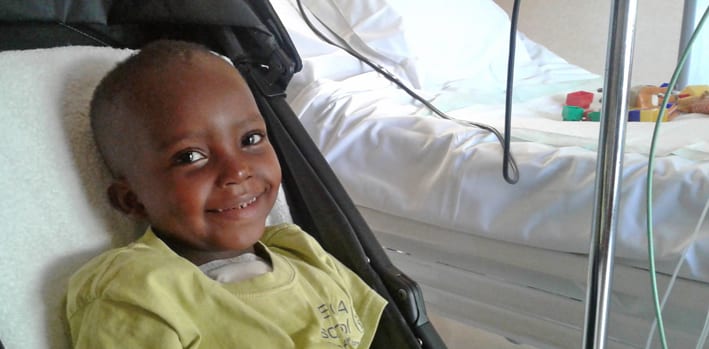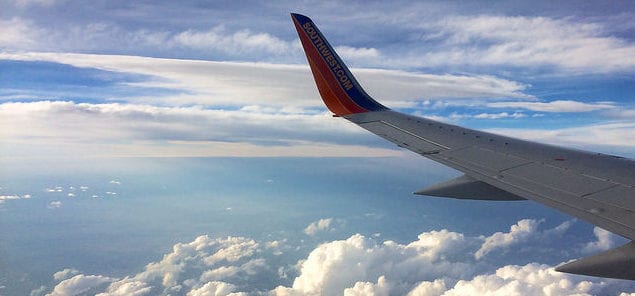
Last week, in an expression of gratitude, the Department of International Cooperation (DCI), gathered in doctors, host families, volunteers, and those responsible for administrative formalities involved in the Monaco Collectif Humanitaire (MCH) project.
The goal of MCH is to provide medical care for children from developing countries whose serious illnesses, mainly cardiac and sometimes orthopaedic, are not treatable in their countries of origin. And it is the “exemplary commitment” of the Monaco Red Cross, the NGO Rencontres Africaines, the Monaco Cardio-Thoracic Centre (CCM) and the Princess Grace Hospital that has enabled life-saving operations for 300 children in the Principality.
Since its creation in 1987, the CCM has been a major player in MCH’s mission by ensuring cardiology diagnosis, surgery and paediatric intensive care. Forty operations are performed each year, sometimes as many as four to five a week.
“People tend to think it’s easy for children from west African countries to come to Monaco,” Dr François Bourlon told Monaco Life at a press conference on September 28. “But it’s very stressful for these sick kids to leave their families, travel to Nice by plane, and then be transported here to Monaco. And then they have stay with a host family, sometimes for a few weeks but other times for months.”
The expertise of CCM’s medical and surgical teams and its staff’s dedication is paramount to the programme’s success, but equal acknowledgement must be given to the involvement of the associations, the very ones that participated at the DCI evening last week, which are essential to the transportation and childcare within the MCH project.
The subject of childcare falls under the responsibility of the Monaco Red Cross and Rencontres Africaines, a Loi 1901 association founded in 1991, which aims to directly provide various assistance to those most in need in Africa, in particular in the Sahel, the area between the Sahara and the Sudanian Savanna.
Although its other activities include sending medical equipment and school supplies, providing well-digging as well as a medical team and mobile surgical unit, in Monaco Rencontres Africaines finds and monitors host families for the children up to the age of 15 coming for life-saving surgery.
“David” (we don’t have permission to publish his photo) travelled from Burkina to Nice on Tuesday October 6. After 17 hours of air travel, with a stopover in Paris, the 14-month-old arrived at the Cardio-Thoracic Centre in Monaco, looking rather unresponsive, his thin legs dangling in the arms of Marie-Laure, his host mother during his stay abroad. Despite being twice the age, David is the size of a 6-month-old baby. He was born with a heart defect and has severe hypertension. If he doesn’t have surgery he will die within months.
For Marie-Laure, David is the sixth foster child she has taken on, and he’ll stay with her for a few weeks after his surgery, although for more serious operations, a child could stay with a family for up to three months during convalescence.
David sits on her knee, warily, in the CCM’s cafeteria, where Christine, President of Rencontres Africaines who manages the “Accueil Chirurgical” (the reception of patients) and Véronique, the association’s secretary, also come to discuss with Monaco Life the process of becoming a host family, or “famille d’accueil”.
There are many parties involved in logistically transporting a child from Point A to Point B, which is overseen by Monaco Collectif Humanitaire. This includes, since 2008, a partnership with Aviation Sans Frontières, started in 1980 by a group of Air France pilots, whose 368 volunteers transport and accompany all the children from their homeland to Monaco via Nice for surgery.
Each child and foster family is put on a waiting list, and when the doctor gives the go ahead for an upcoming surgery three things have to come together. First the child, then the family, and finally the date.
“It’s a heavy responsibility that involves a moral commitment, often more intense than that of your own child,” describes Christine. “These children are very sick and tired, and they require a lot of time and energy.”
“It’s true,” adds Marie-Laure, who recruits foster families, “that people think they will have ‘a good baby’ for a few weeks. But these children are often not pleasant or nice. They are unwell.”
To become a foster family, Marie-Laure visits a candidate’s home, for about 90 minutes, to make contact, discuss the issues and answer any questions.
Host families receive no remuneration, it’s a voluntary act, and they are responsible for paying for food, providing diapers and so forth. And, crucially, the whole family has to be on board with the idea and understand that the visiting child will not be a bundle of joy to be paraded around.
There’s a period of reflection after the first visit and then, if the family is willing to move forward, they sign a document accepting the association’s Communications Charter.

“The biggest problem is time commitment,” Christine, who has fostered 14 children in the program, states. “Families must have open availability during the time the child is in their care. Usually, the child spends a week with the family before going to the Cardio-Thoracic Centre, then a week at the clinic before coming back to the host family for maybe two additional weeks of convalesce. Even when the child is at the hospital, the foster family is required to spend half-days visiting him at the hospital,” she explains.
The rules are explicit, no visits from biological families during the program, although there may be some contact by letter or email or text with a family member before and during the visit. The most frequently asked questions are what does the child eat, and what language does he speak, which for the younger children is not an issue.
Marie-Laure adds, “Being a host family is all about the child. It can get emotional but you cannot get attached.”
“The most incredible moment, when you are overjoyed, is saying goodbye to the child at the airport. He arrived sick but he leaves cured,” expresses Christine, who said the first time she said goodbye, she sat in her car afterward and cried. “They have their lives to live and we have ours.”
To learn more about becoming a host family visit Monaco Collectif Humanitaire. Or contact Christine (06 62 52 11 50) or Marie-Laure (06 15 37 06 72). Alternatively send an email in English or French to accueilchirurgical.ra@gmail.com
READ MORE: Life-saving procedures made possible thanks to volunteers
READ MORE: Barclays Monaco: an active commitment to children
Article first published October 18, 2016.






